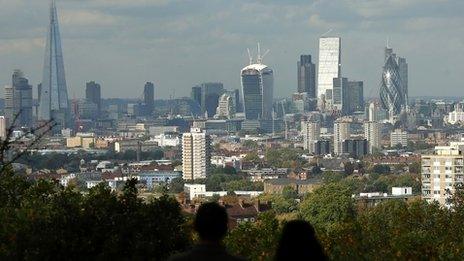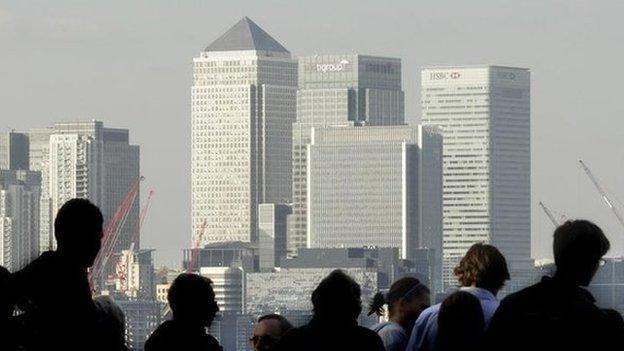Labour 50p tax plan: Why are some people staying quiet?
- Published

Labour has pledged to restore the tax for people earning over £150,000 if it wins the next election
When in the spring of 2012 George Osborne was considering jettisoning the 50p tax, I'm told some close to him were very wary of letting him go ahead.
They thought he would send out the wrong message - destroy any pretence of being "in it together", and signal the Conservatives' proximity once more to high earners and big business.
Mr Osborne, I'm told, resisted the sway of advisers on this one, saying that he was persuaded by the economic case for ditching a tax that simply didn't yield enough money.
He told one confidant, and I paraphrase slightly, "I've fought hard to become chancellor of the exchequer and now, just for a short while, I'd like to be the chancellor of the exchequer."
His budget announcement of March 2012, signalling the end of the 50p tax, met with a mixed reception.
Don't forget this was the rotisserie chicken/pasty budget that went on to earn itself the "omnishambles" nickname.
And yet, two years on, I can't help thinking Mr Osborne will be quietly delighted with the reception Mr Balls has got - at least from business and the vocal opponents - to his suggestion that Labour would bring it back.
A poll by analyst Mike Smithson, external shows how voters responded when Mr Osborne axed the 50p tax rate in March 2012, when Conservative voters were the only group where a majority were in a favour of cutting the tax.
In the poll, a majority of all other politically aligned voters opposed the cut.
But I don't hear many of them cheering that loudly now it's been suggested it could make a comeback.
I wonder if the explanation is less about economics and more about messaging? People find it easy to shout when a tax on the rich is dropped.
But suggest you'll bring it back again, and, well, no-one's quite sure they want that either.
UPDATE 14:00
Talking to business figures this morning, I kept hearing the same phrases over again.
It's not, they tell me, the 50p tax itself that they mind, it's the sense that it's being driven by "polling and populism… an arbitrary attempt at policy making where nothing is off the table".
One business figure told me it was easy to argue the tax itself could be fair; another said they didn't mind the thought of "a left-wing Ed Miliband".
What they objected to more than anything was the sense that Labour was putting a programme together - brick by brick - driven by what it thought would sound popular, rather than what would actually work.
One of Tony Blair's close advisers tells me "this is a classic case of taking a policy that looks to be popular - and it all adds up to a platform that is anti-business and anti-enterprise. It's sad and wrong. It feels like the Kinnock days and, well, we know how that movie ends".
Of course the idea that Tony Blair had the entire City on board back in 1997 has been slightly mythologised - indeed it would eventually earn the nickname "prawn cocktail offensive".
It was never really quite as comprehensive as history now paints, but Tony Blair went into 1997 believing that this would be the last time the very question of Labour and business would ever be asked.
Seventeen years on, it feels like we're asking that question quite a lot…
- Published27 January 2014

- Published25 January 2014

- Published25 January 2014

- Published25 January 2014
